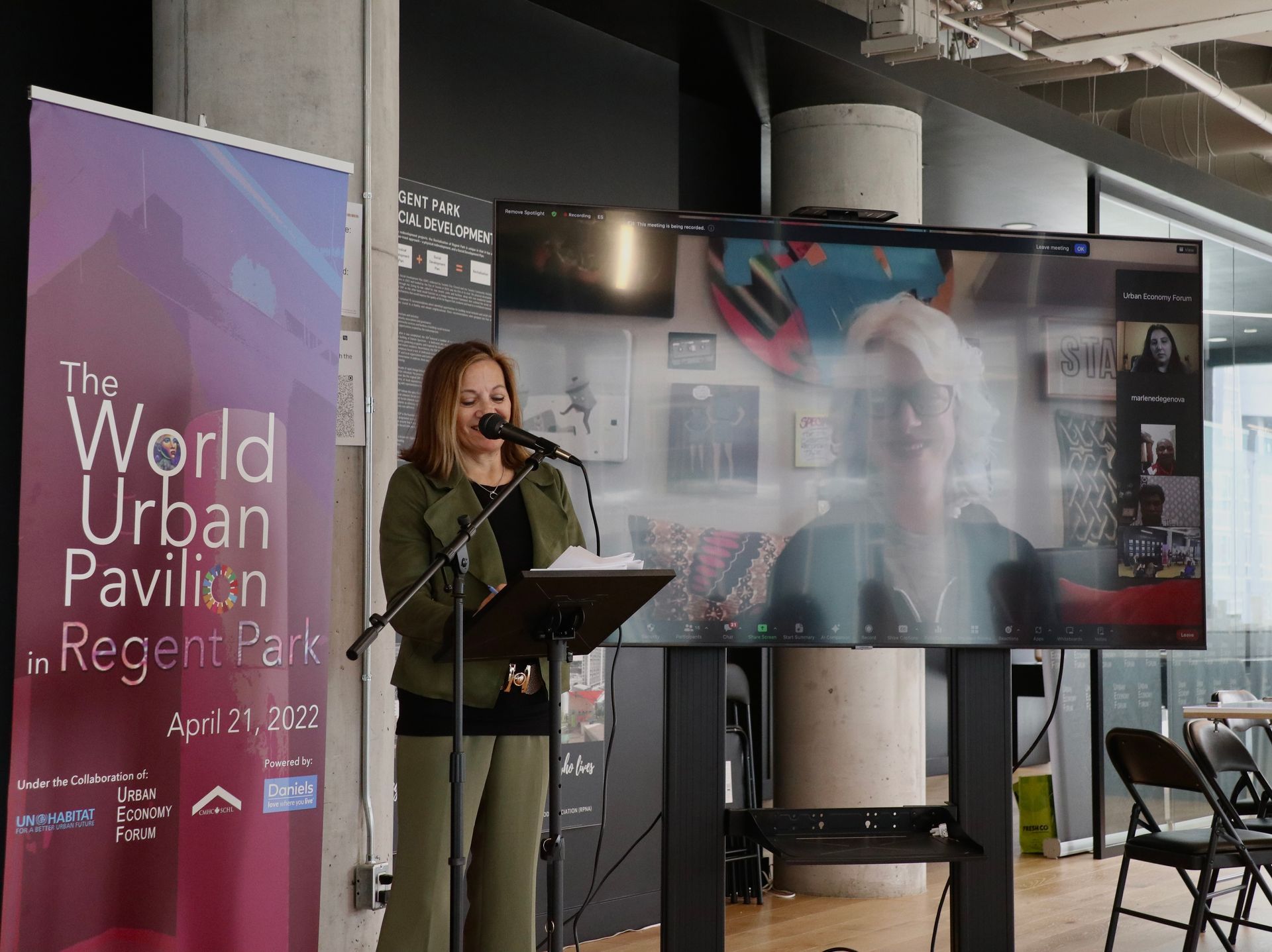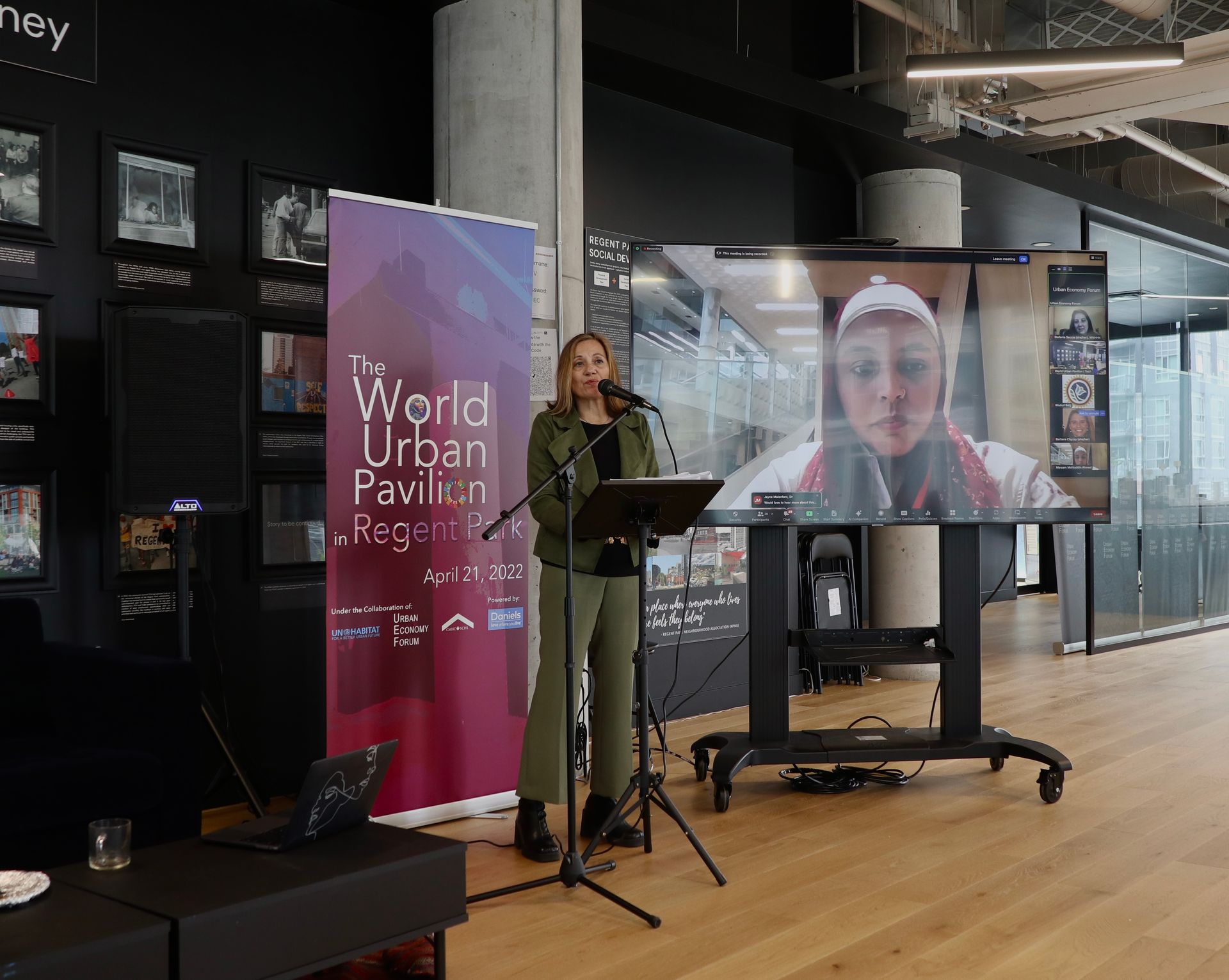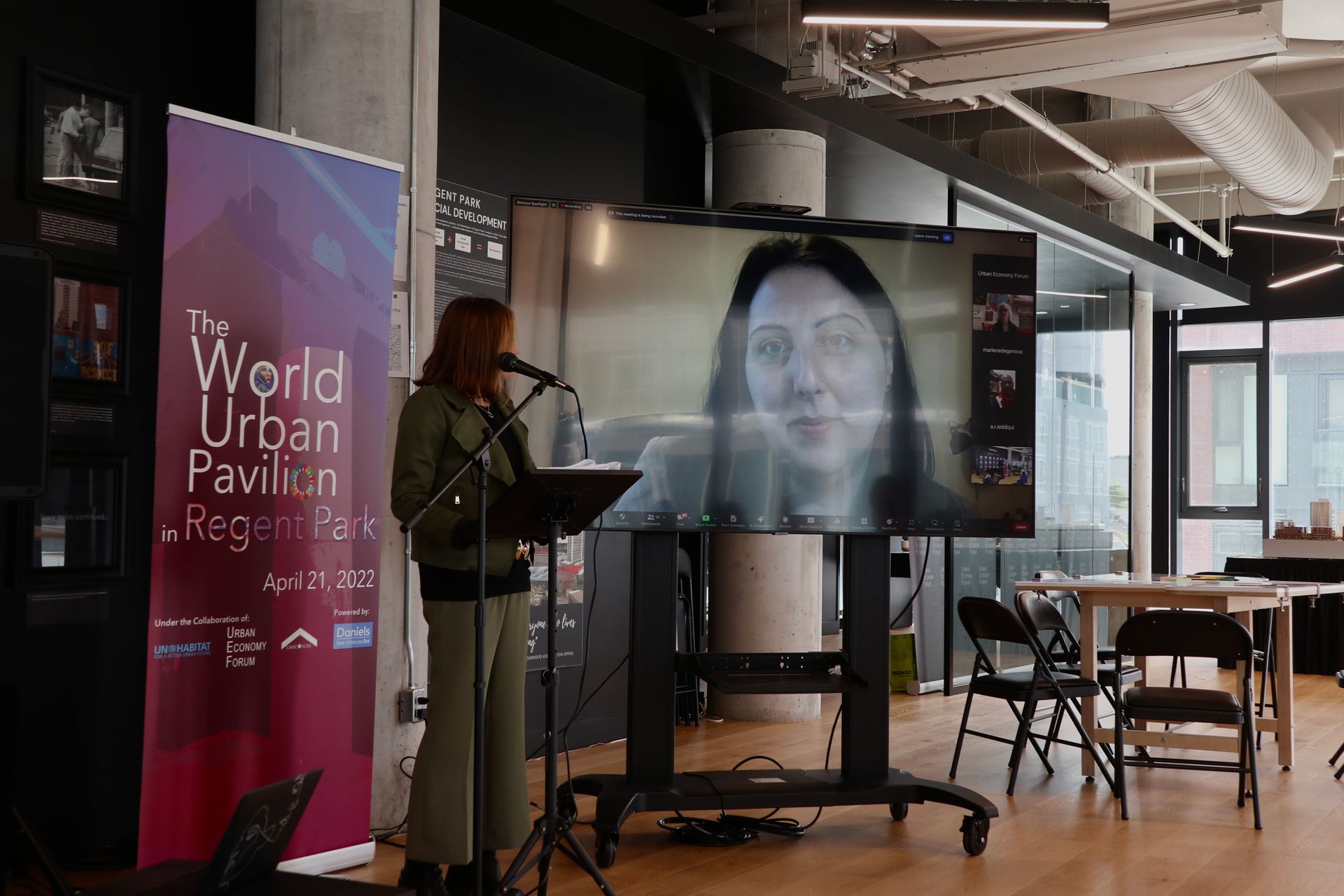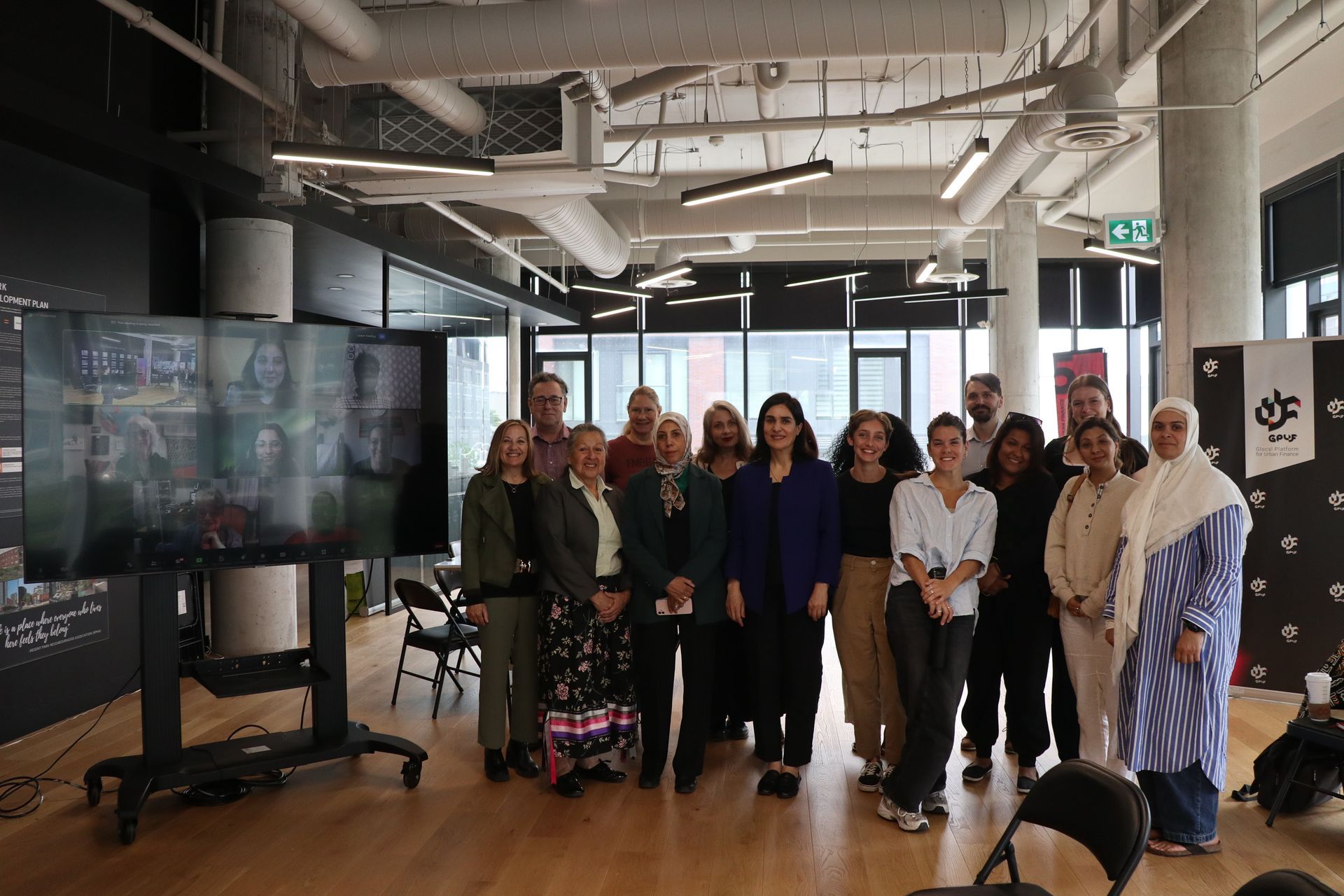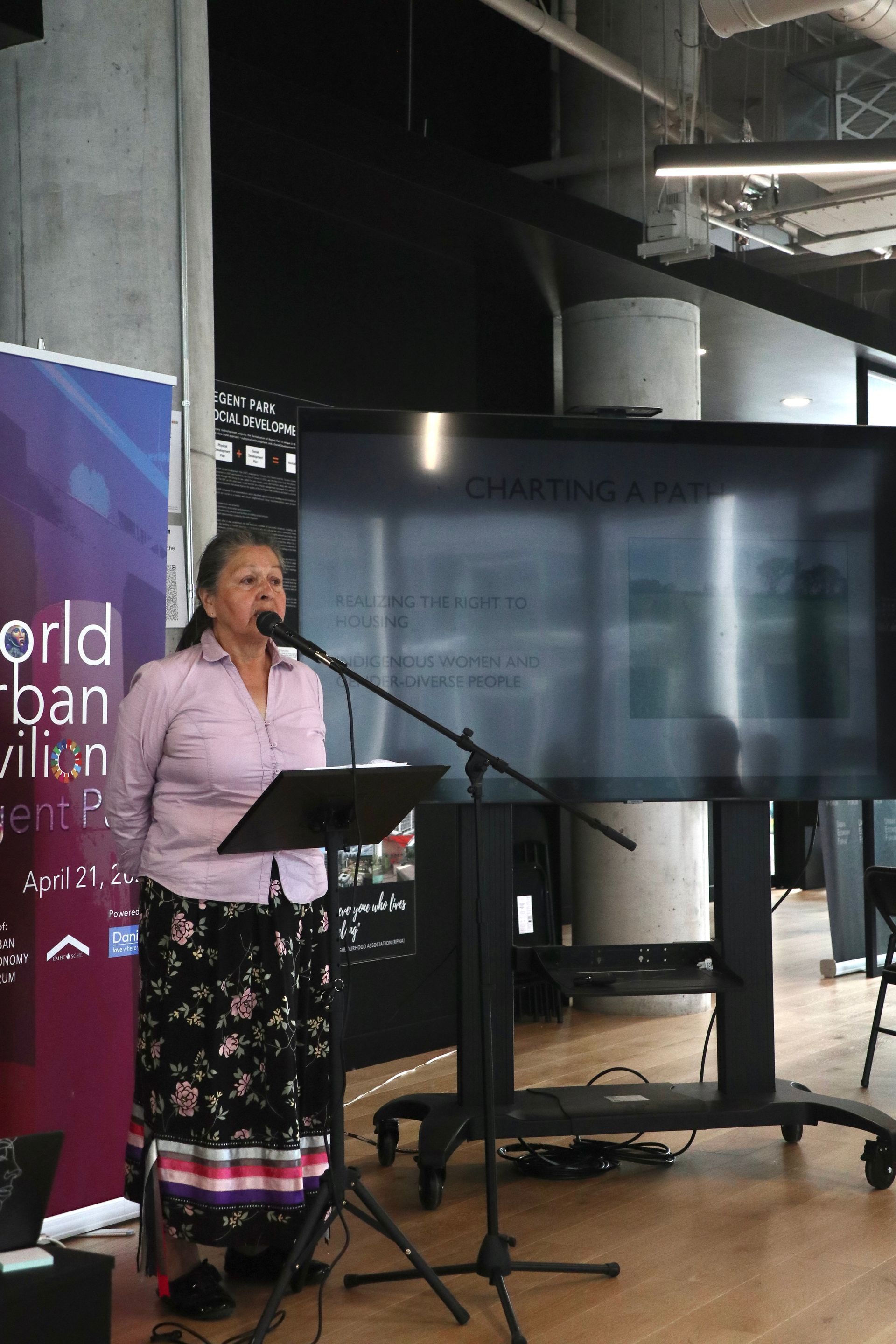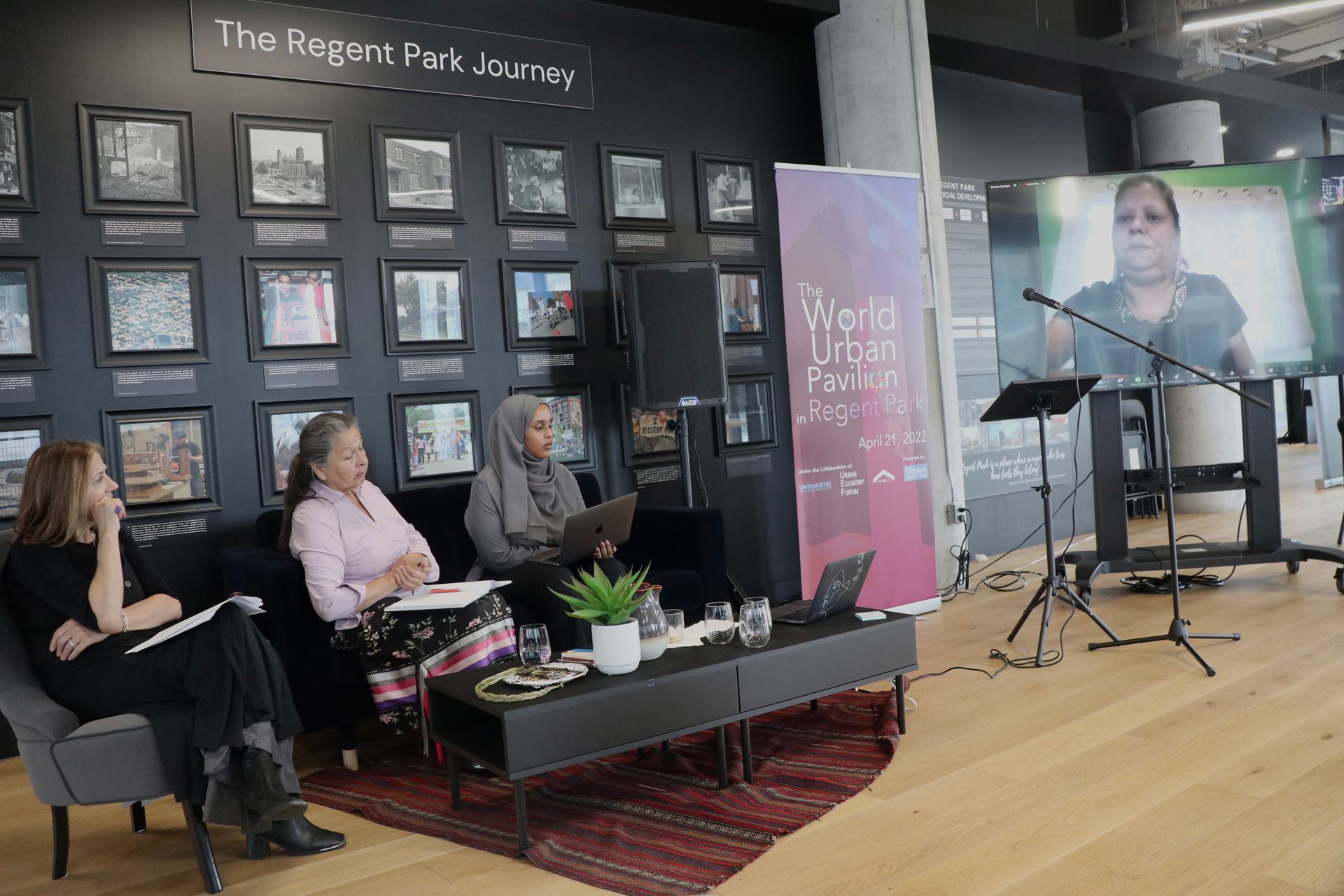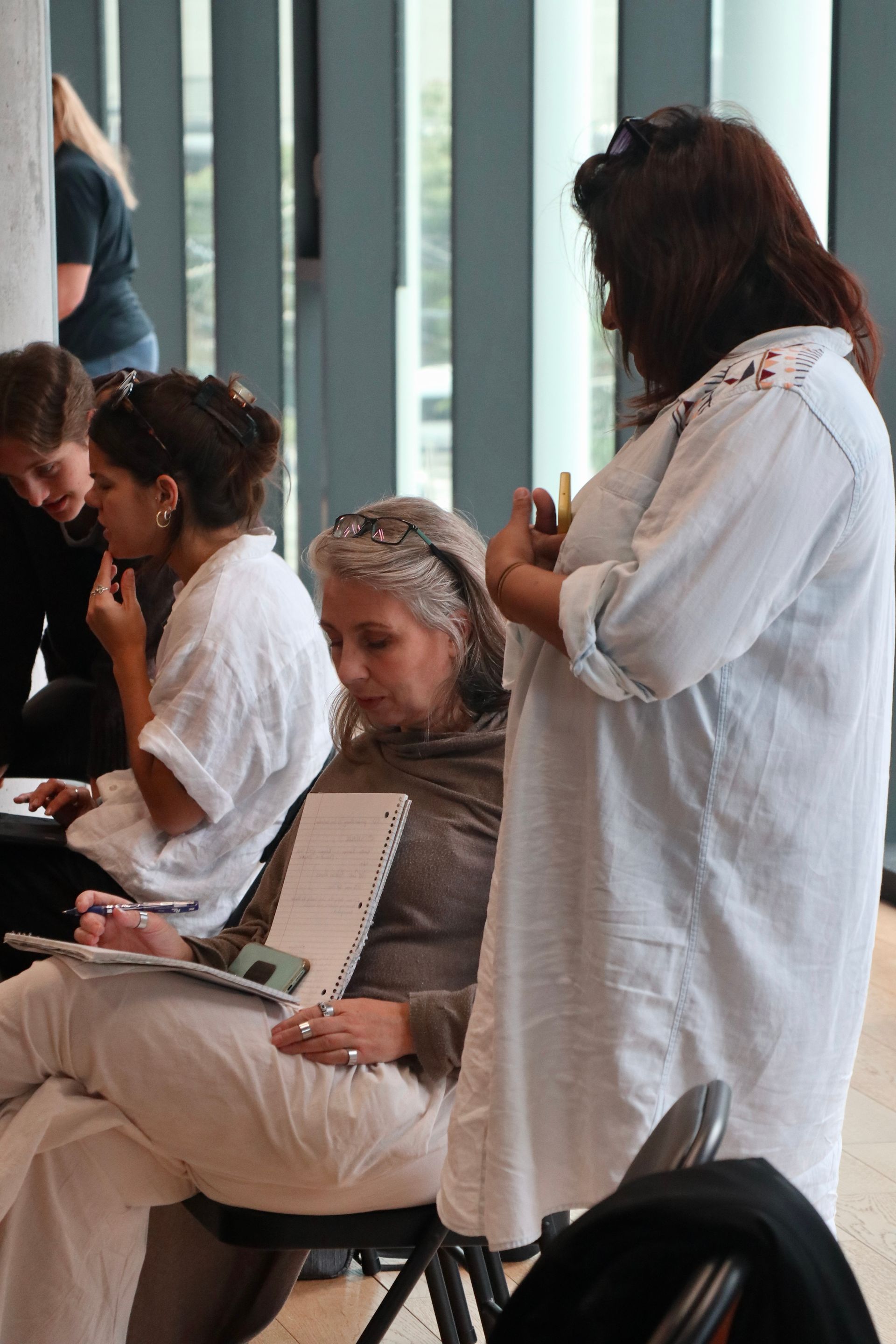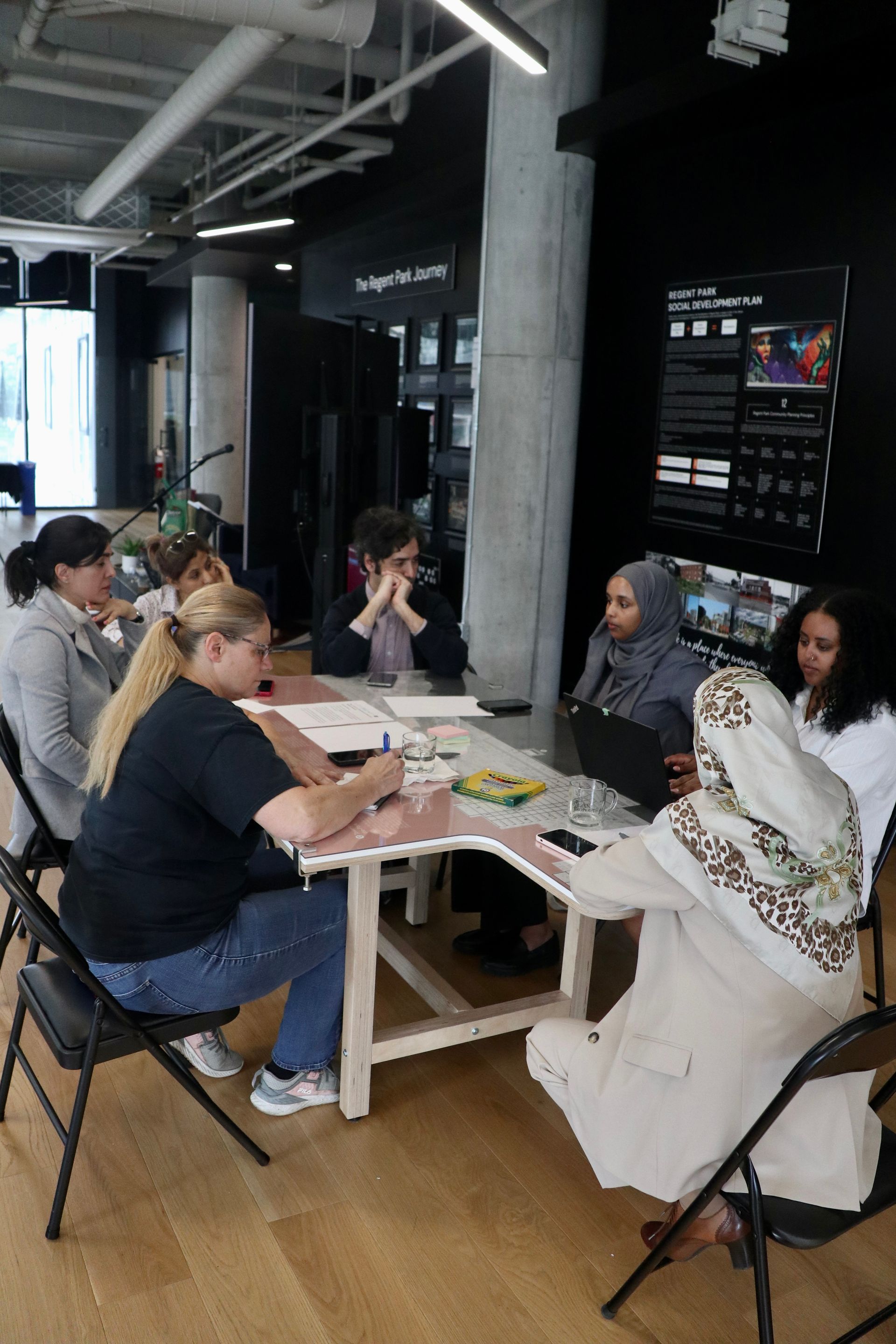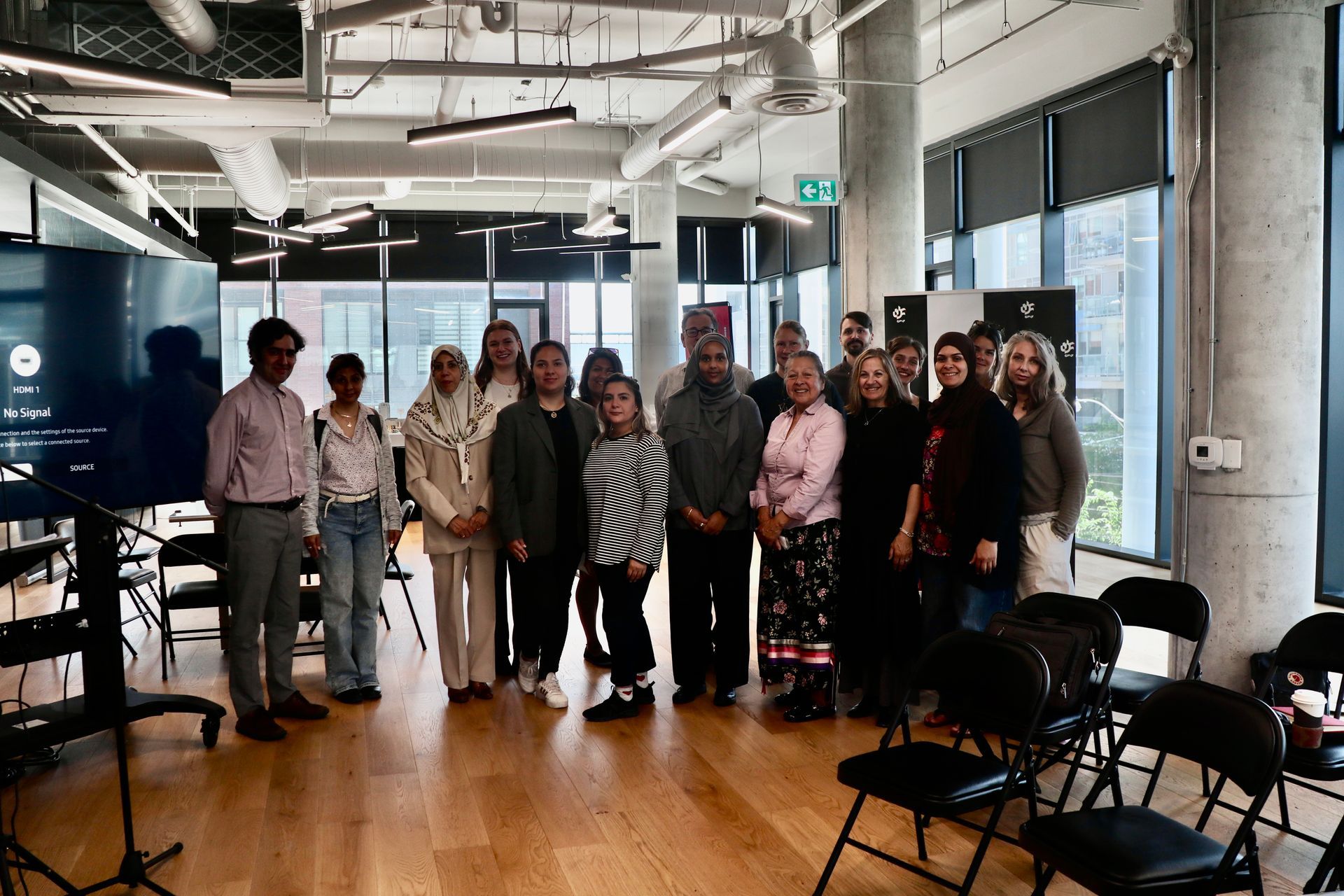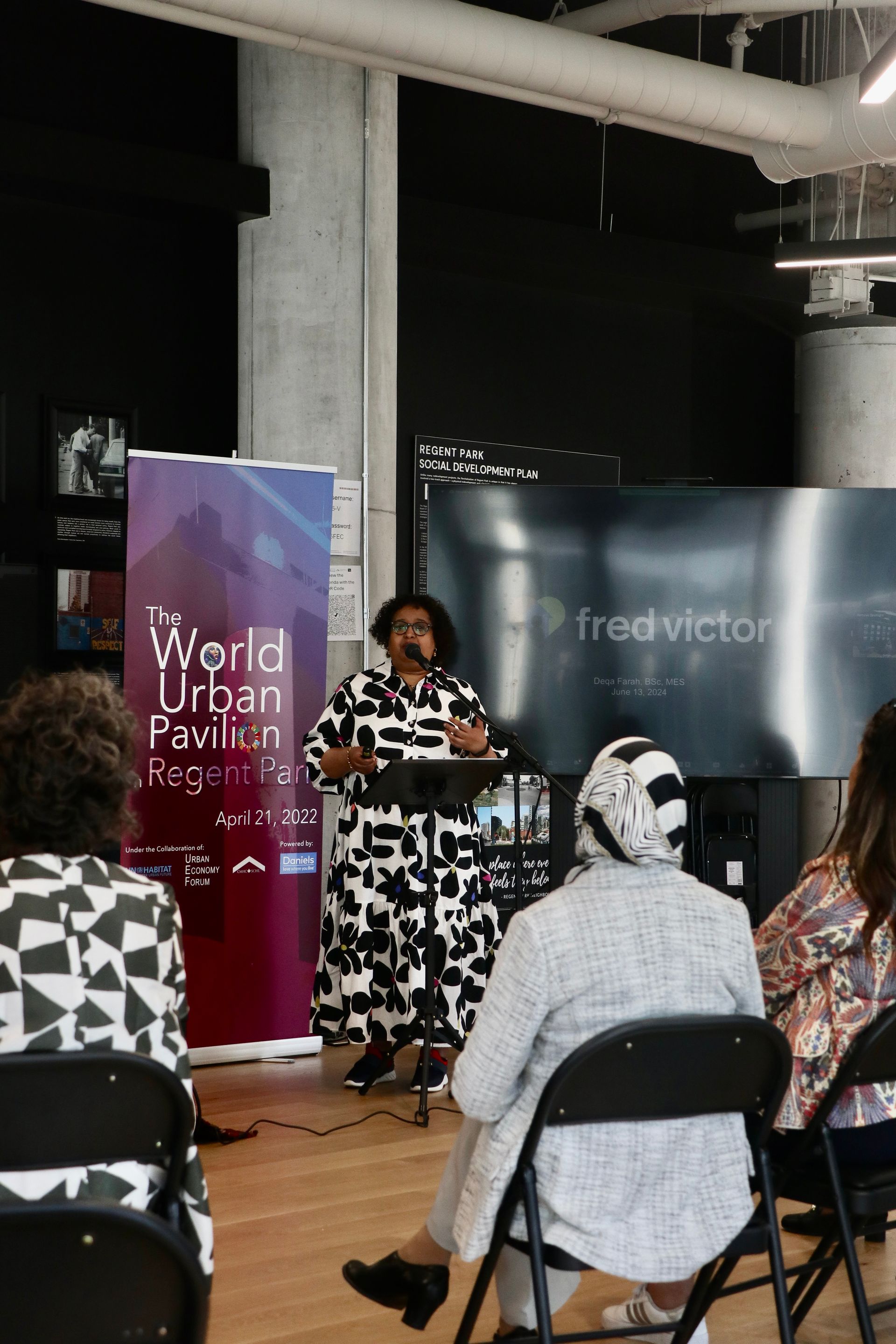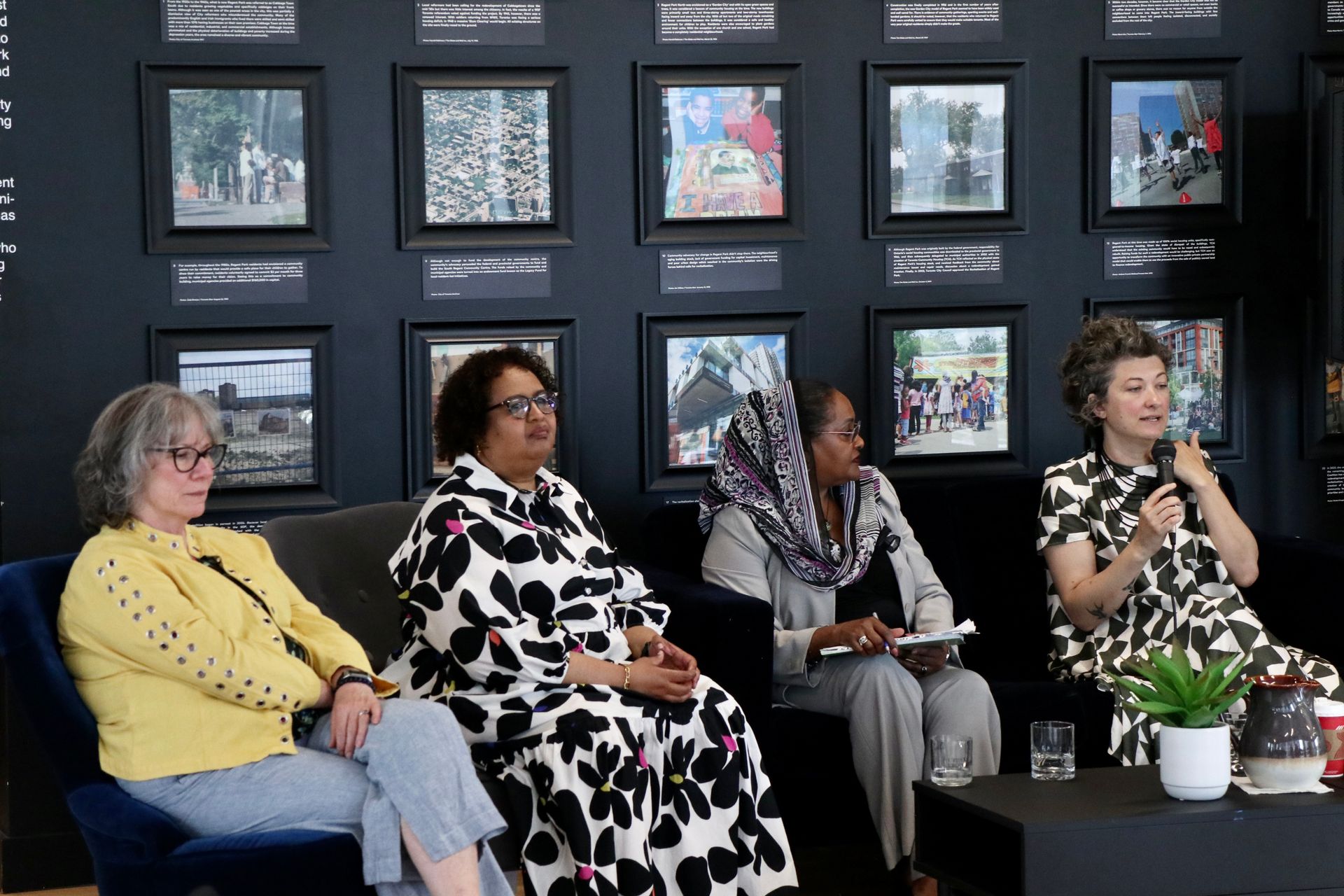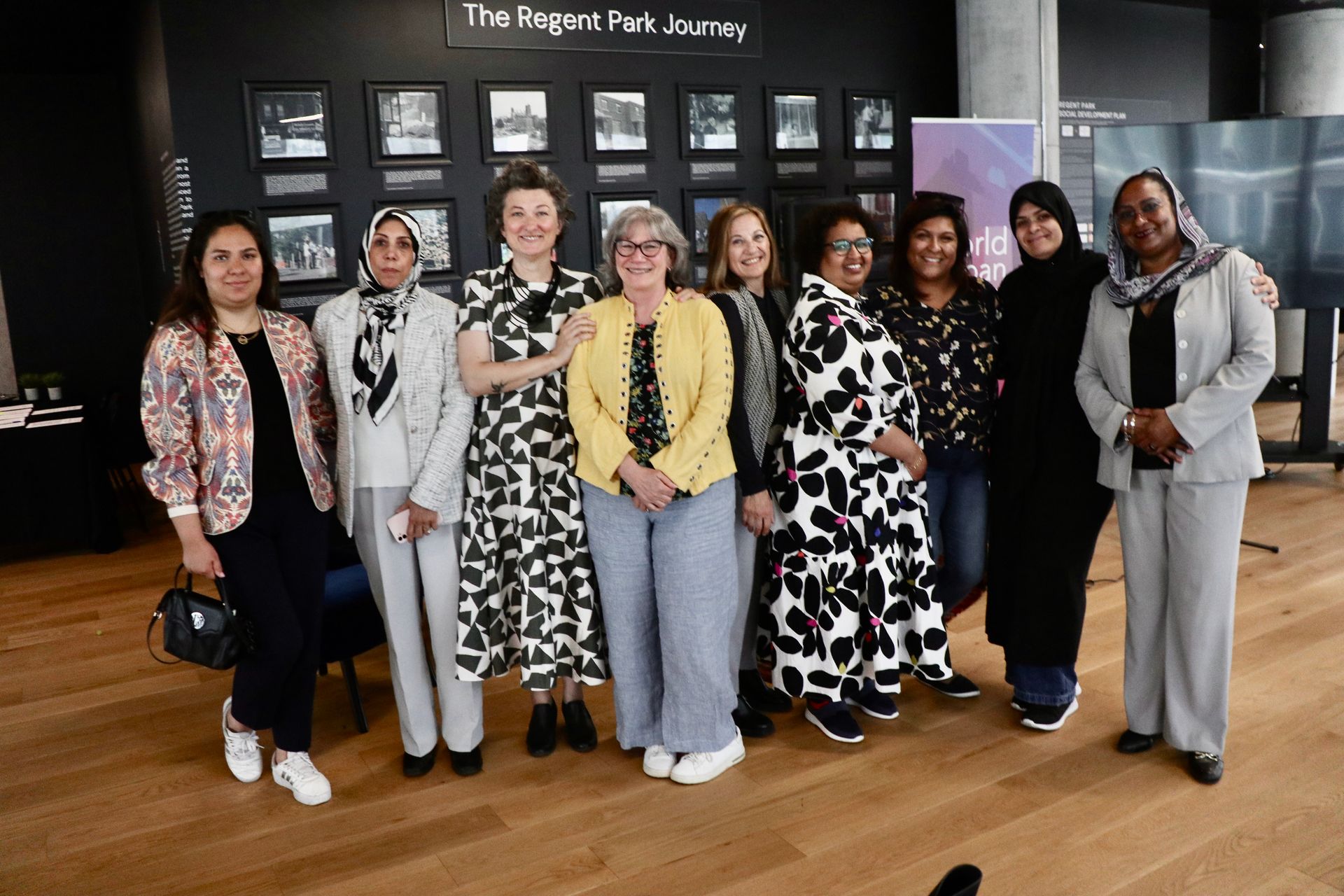Housing Challenges for Women and Gender-Diverse People: Exploring Solutions and Support Systems
Housing Challenges for Women and Gender-Diverse People: Exploring Solutions and Support Systems
The Urban Economy Forum (UEF) and the World Urban Pavilion (WUP) together with the Women’s National Housing and Homelessness Network (WNHHN), and the National Indigenous Women’s Housing Network (NIWHN), are hosting a three-half day events on June 11, 12, and 13 2024, entitled "Housing Challenges for Women and Gender-Diverse People: Exploring Solutions and Support Systems" to raise awareness on housing issues faced by women and gender-diverse people, including homelessness, and engage in meaningful conversations to explore innovative solutions to amend the situation. It is vital to engage women and gender-diverse people in these discussions considering their unique perspectives, needs, and experiences.
World Urban Campaign – Urban Thinkers Campus 9.0
This event is affiliated with the World Urban Campaign (WUC), an initiative led by UN-Habitat, which has issued a Call for Action on #HousingMatters. This global campaign seeks to emphasize housing as a fundamental need that significantly influences our environment, well-being, and the future of cities. The WUC serves as an advocacy and partnership platform aimed at promoting awareness of positive urban changes necessary for achieving green, productive, safe, healthy, inclusive, and well-planned cities.
The Urban Thinkers Campus (UTC) functions as an open forum for critical dialogue among urban stakeholders and decision-makers who recognize urbanization as an opportunity for beneficial urban transformations. Its primary objective is to facilitate collaboration among partners towards the realization of the Sustainable Development Goals by 2030 and the New Urban Agenda by 2036.
World Urban Pavilion – Canada: Women and Urban SDGs
This UTC is aligned with the flagship program of the World Urban Pavilion, "Canada: Women and Urban SDGs," which aims to enhance capacities for creating a fair and just society where gender equality is achieved. The program seeks to transform the urban paradigm by promoting a gender-sensitive approach to urban planning that addresses the housing needs of women, girls and gender-diverse people.
The Urban Thinkers Campus is being held in person at the World Urban Pavilion located at 660 Dundas Street East, 3rd Floor, Unit 5 & 6, Toronto and virtually June 11, 12, and 13th.
POST UTC 9.0
A heartfelt thank you to everyone who joined us our Urban Thinkers Campus 9.0 UTC 9.0 Housing Challenges for Women and Gender-Diverse People: Exploring Solutions and Support Systems ! We deeply appreciate the invaluable insights from our dedicated speakers and the Fred Victor team, who shared their innovative approaches to ending homelessness for women and gender-diverse individuals in Toronto. To our partners, participants, and supporters—both in-person and virtual—your engagement and collaboration were instrumental in making this event a success. Together, we are building a future where everyone has a place to call home
UTC 9.0 Day 1
UTC 9.0 Day 2
UTC 9.0 Day 3
PARTNERS
Urban Economy Forum - a global organization that partners with the UN system and international collaborators to advance the achievement of the 17 Sustainable Development Goals. Our emphasis lies in SDG11, sustainable cities and communities with a mandate to better understand urban economies, resources, and financing.
World Urban Pavilion - serves as a hub for the exchange of knowledge, facilitating the sharing of best practices, innovation, and research in urban development and revitalization from various countries globally. It envisions cities that prioritize people, emphasizing sustainability and are meticulously planned through data analysis, propelled by innovation, and guided by the principles of the SDGs.
Women National Housing and Homelessness Network - a coalition of diverse women, including those with firsthand experience, dedicated to eradicating housing insecurity and homelessness for women, girls, and gender-diverse peoples throughout Canada. Their efforts emphasize the knowledge of women, girls, and gender-diverse individuals who have directly faced housing instability and homelessness, placing them in leadership roles to wield decision-making authority in the formulation, implementation, and assessment of homelessness programs and services.
National Indigenous Women's Housing Network - comprises First Nations, Inuit, and Métis Peoples committed to enhancing the living conditions of Indigenous women, girls, Two-Spirit individuals, and those with diverse gender identities throughout Turtle Island. Their goal is to eliminate instances of homelessness, drawing on the shared lived experiences of members who have faced the challenge of finding suitable shelter and a place to call home.
Fred Victor (FV) is a charitable social service organization dedicated to creating enduring and positive transformations in the lives of individuals experiencing homelessness and those with low incomes in Toronto, Canada. They offer housing and shelter services for men, women, and families facing extreme poverty, marginal housing, or homelessness. Their housing initiatives encompass affordable housing, transitional housing, women's transition to housing, shelters, emergency respite centers, housing access to support services, and assistance with daily living.
THE TEAM
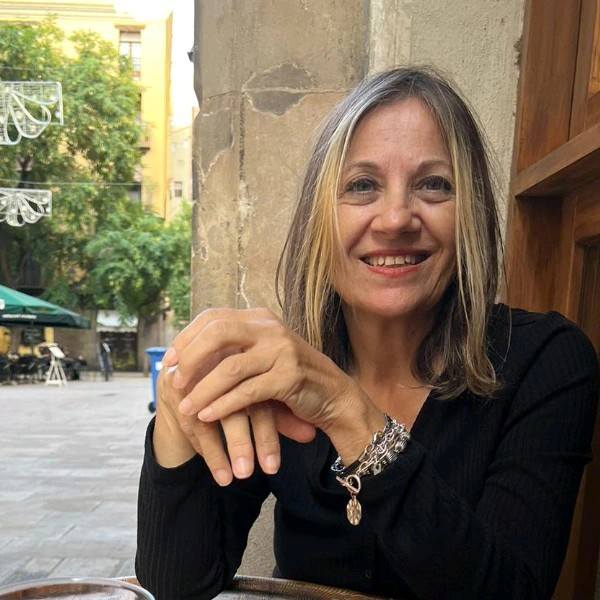
Ilda Cordeiro
Ilda is the Director of Programs at the Urban Economy Forum (UEF). With over 20 years of expertise in urban planning and program management, Ilda has a wealth of experience working with the public and private sector. She is dedicated to fostering collaborative efforts with leaders on both national and global scales to advance crucial concepts related to urban economy and sustainable municipal finance. This commitment aligns with the United Nations' 17 Sustainable Development Goals, with a particular focus on SDG 11, aiming to create inclusive, safe, resilient, and sustainable cities and communities.
Ilda holds a master's degree in environmental studies from York University and was a registered planner with the Ontario Planners Professional Institute (OPPI) for eight years. Her enthusiasm lies in engaging with diverse stakeholders worldwide, ensuring the inclusivity of all voices in decision-making processes for city development. Her ultimate goal is to contribute to the achievement of the UN Sustainable Development Goals, leaving no one behind in the pursuit of sustainable urban economy and development.
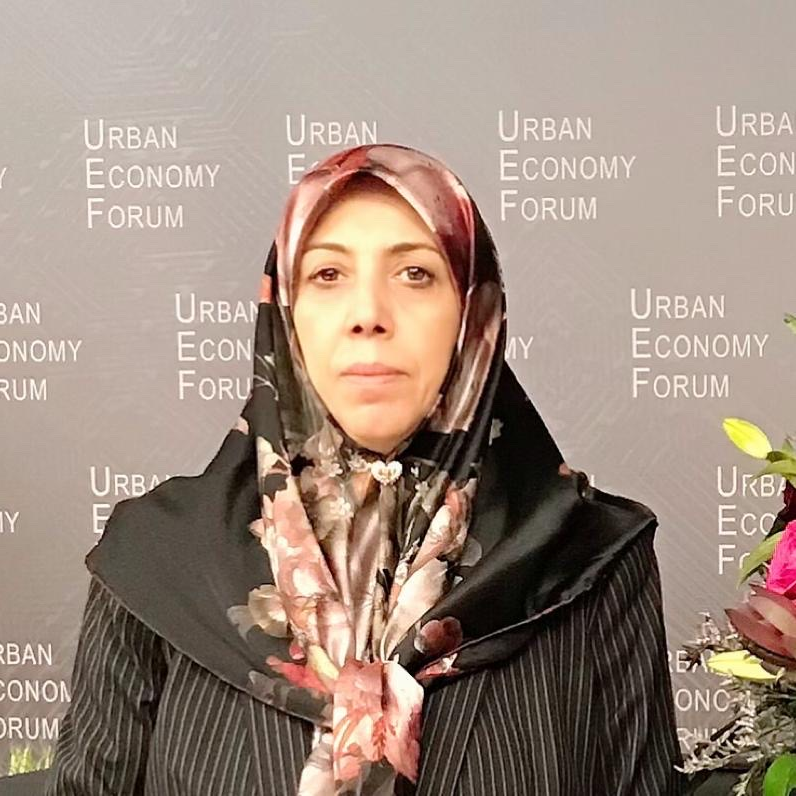
Fazileh Dadvar
Fazileh Dadvar serves as Chief of Research and Development at UEF and Head of Networking and Capacity Building at WUP, she is instrumental in organizing the flagship Annual Forums at UEF, fostering connections with various national and international universities, and managing developmental projects and events within the organization. She also is leading capacity building and partnerships at the World Urban Pavilion in collaboration with UN-Habitat, powered by Daniels, at Regent Park. In these roles, With a Ph.D. in Regional and Rural Geography, Fazileh brings over 25 years of experience as a professor at the University of Tehran. Her extensive publications span Gender Geography, Regional and Rural Planning, and Tourism Planning, with a particular focus on Rural Tourism. Fazileh has collaborated with international journals for over two decades. She also has a rich background in working closely with local communities, conducting extensive research on rural communities, especially within the context of Iran.
Her areas of expertise include Geography and Regional Development, Geography and Rural Planning, Gender Geography, Sustainable Development, Tourism Planning, and Empowerment of Local Communities. Additionally, Fazileh is affiliated with York University, focusing on the Cluster of Home, Identity, and Belonging at the Center for Feminist Research. Her diverse experiences and academic contributions underscore her commitment to advancing knowledge in these critical areas.

Reza Pourvaziry
Reza Pourvaziry is an Architect with over 20 years of experience, including as an international urban researcher focusing on the concept of architecture and sustainability. Reza established the International Art & Architecture Research Association (IAARA) in 2002 to work and conduct research pertaining to urban architecture, habitat, and settlements, with a focus on sustainability, multiple international architecture awards.
He created numerous development projects and programs and started working as the member of Steering Committee of UN-Habitat’s best practices since 2004. Designted by the Under-Secretary-General of the UN and former Executive Director of UN-Habitat as the First Global Advocate of UN-Habitat in 2016 for his contributions globally. He established the Middle East Regional Center for Best Practice and Local Leadership from 2012 to 2014.
Presently, he is the Founder and Chair of Urban Economy Forum since 2018, and is working on urban development projects globally. Reza established strategic partnerships between United Nations and the Government of Canada to establish the World Urban Pavilion in Regent Park, a collaborative initiative between the UEF and UN-Habitat, supported by the Government of Canada and The Daniels Corporation. The Pavilion was officially launched on April 21, 2020.

Marie McGregor Pitawanakwat
Marie McGregor Pitawanakwat is an Anishinaabe kwe, at Daawganing, on Manitoulin Island, Northeastern Ontario, Canada. Marie developed a business called Szhibeegen Training Services, which provided training and development to First Nation communities and NGOs, primarily in Northwestern Ontario, focussed on community and business development. Her business won an award from the Northern Ontario Business Awards.
In 2015, shortly after returning to her home community at Whitefish River First Nation, she was evicted from the original family home and became homeless. Her belief was and is that Indigenous people already own the land, so there was and is no need to “purchase” land that one’s people already own. She created a tiny home, situated in the woods on the Whitefish River reserve on unused land, where she lived off-grid for three years.
In 2018, the Whitefish River reserve evicted her and she became homeless again. In 2019, Marie was accepted as a member of Wiikwemkoong Unceded Territory.
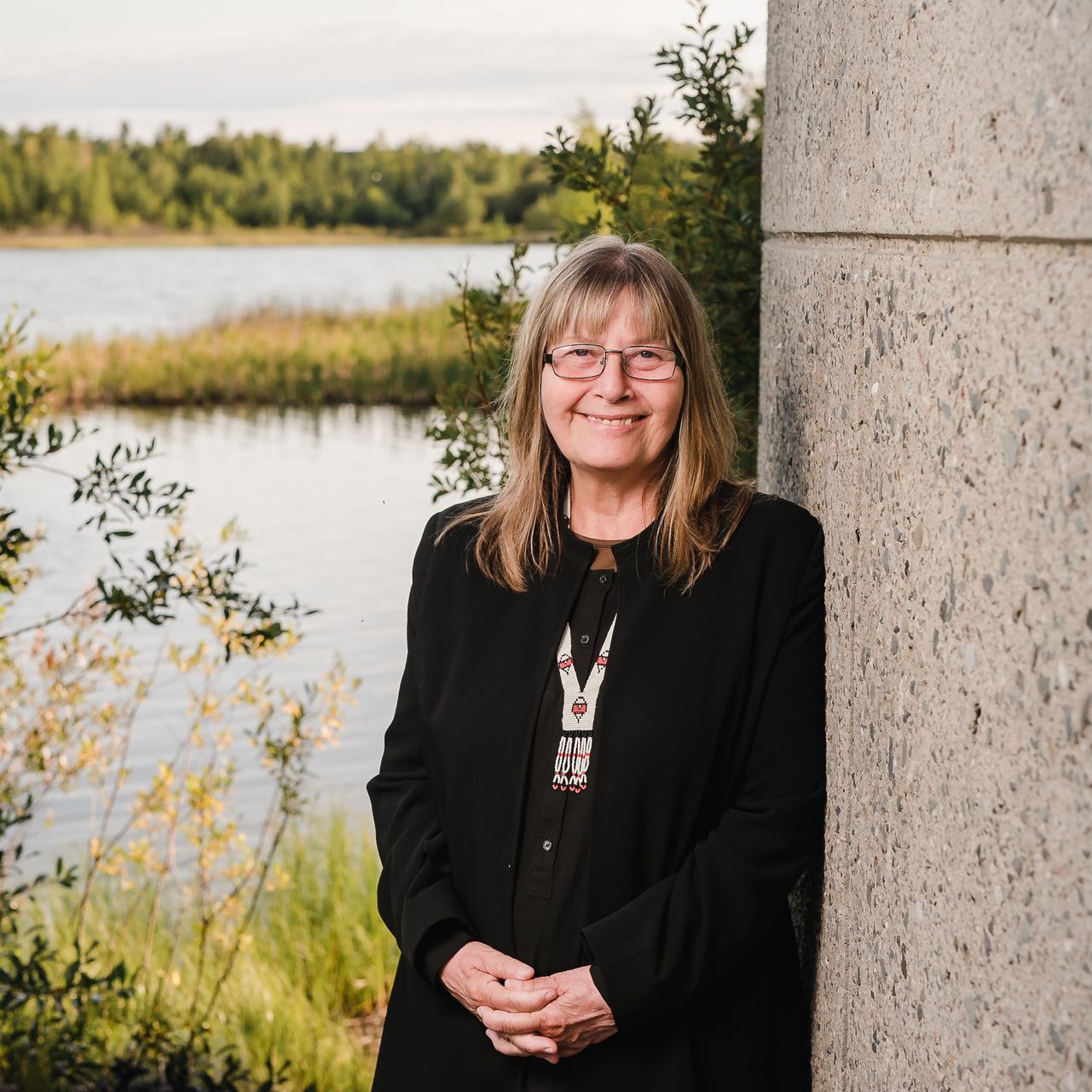
Arlene Hache
Arlene Hache is a grassroots woman who has experienced homelessness and traumatic impacts of childhood violence. She has an MA in Leadership from Royal Roads University and currently sits as a Co-Chair of the Women’s National Housing and Homelessness Network.
Arlene founded, and over two decades, led an urban-based family resource centre that provided support to marginalized women and their families, the majority of which were Indigenous. She is well-known across Canada’s Arctic as an advocate for social change and in recognition of her work was awarded the Order of Canada in 2009 and then the Queen Elizabeth II Diamond Jubilee Medal in 2012. Of equal importance, Arlene was honoured with a Star Blanket ceremony guided by Wisdom Keepers and hosted by Keepers of the Circle, an Indigenous Hub in Northeastern Ontario. Arlene is a published author and has participated on several research teams that gives voice to people with lived experience. She has also served on territorial, national and international boards that address gender equality.

Khulud Baig
Khulud Baig is the Director, Policy and Community Engagement with Keepers of the Circle and The Women's National Housing and Homelessness Network. She has significant experience in community-based and participatory research, with a focus on gender-based analysis of housing and homelessness policy. Previously, Khulud has led housing files at the City for All Women's Initiative and Native Women's Association of Canada, and her key focus in all her work is to create and hold space for lived experience voices in decision-making.

Stefania Seccia
Stefania Seccia joins the Women’s National Housing and Homelessness Network as its Director of Advocacy and Communications following a decade working as a journalist. Stefania is a settler living on the unceded territories of the Coast Salish peoples, the xʷməθkʷəy̓əm (Musqueam), Sḵwx̱wú7mesh (Squamish), and Sel̓íl̓witulh (Tsleil-Waututh), whose presence on and stewardship of these lands continues to this day.
She recently worked with Keepers of the Circle to develop internal communications capacity, delivered a communications strategy, and mentored an Indigenous woman to take on the role of Communications Team Lead. Before that, she was at the Canadian Alliance to End Homelessness for more than three years building their online presence and the belief that ending homelessness is possible. Stefania supported the launch of many of its Allied Networks such as the Women’s National Housing and Homelessness Network, National Right to Housing Network and Canadian Lived Experience Leadership Network; as well as working on its Vote Housing Campaign as National Deputy Director, which saw tens of thousands of people from across Canada elevate the housing crisis as one of the key issues in the 2021 federal election; and she oversaw and managed the organization’s campaigns, media outreach, and social media strategies. Stefania also founded and co-hosted the On the Way Home podcast that releases a weekly episode focusing on the hot issues in the housing and homelessness sector.
For the 10 years spent as a reporter and editor, she explored housing crisis issues concerning the nation’s most vulnerable with a special focus on solutions to homelessness in her hometown Vancouver, and the Downtown Eastside. In that time, she researched and wrote ground-breaking stories diving into social justice issues. She currently sits on Megaphone Magazine’s board of directors, a social enterprise based in the Downtown Eastside that elevates and platforms marginalized voices, where she was formerly the Managing Editor. Above all else, Stefania believes we can solve the homelessness crisis and create a sustainable and just society where every person’s right to housing has been realized.
Outside of work, you can find her running Dungeons and Dragons campaigns, getting chased off of mountains by black bears, or hanging out with her partner, kid and pup in the wilds of Vancouver, B.C.
SPEAKERS

Ilda Cordeiro
MC & Director of Programs / UEF

Fazileh Dadvar
Chief of Research & Development / UEF

Reza Pourvaziry
Chair / UEF

Alyssa Martschenko
UTC Communication Manager / UEF

Marie McGregor Pitawanakwat
Chair, National Indigenous Women’s Housing Network & Co-Chair / WNHHN

Stefania Seccia
Director of Advocacy and Communications / WNHHN

Arlene Hache
Co-Chair / WNHHN

Khulud Baig
Director of Policy and Community Engagement, WNHHN

Douglas Ragan
Program Management Officer, UN-Habitat

Cheryll Case
Founder and CEO, CP Planning

Maryam Ahmed
Senior Fellow, Social Innovation Canada
Dr. Jayne Malenfant
Assistant Professor, McGill University

Alex Venuto
Deputy Director / World Urban Pavilion
Barbara Chyzzy
Assistant Professor, Toronto Metropolitan University &
Member of the Young Parents No Fixed Address

Carol McBride
President, Native Women’s Association of Canada
Colleen Carpenter
Low Carbon Program Assistant
Bertha Cormier
Executive Director, Keepers of the Circle
Lisa Thurber
Founder, Tenant Association - NWT

Sherry Hayes
Senior Manager, Quality Assurance 24 Hour Services

Vesna Milinkovic
MHSc, CHE, RP(Qualifying), Director, Health Services, Fred Victor Centre
Deqa Farah
Director of Housing Access and Support Services

Eiman Elwidaa
Director of Housing, Investment and Development at Fred Victo
For most up to date news about this event, make sure to follow us on social media.



